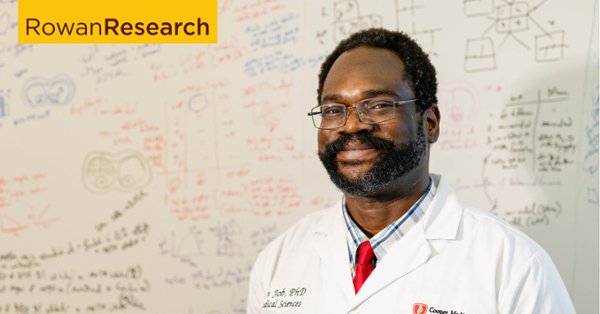Matching patients with addiction to the right treatment
 Do all addiction treatments work for all patients with addiction? Not according to Dr. Martin O. Job, addiction research scientist and assistant professor in the Department of Biomedical Sciences at Cooper Medical School of Rowan University (CMSRU).
Do all addiction treatments work for all patients with addiction? Not according to Dr. Martin O. Job, addiction research scientist and assistant professor in the Department of Biomedical Sciences at Cooper Medical School of Rowan University (CMSRU).
To learn which patients might respond well to a particular intervention, Job is working to identify phenotypes and pharmacotypes among animal subjects. Phenotypes refer to similar groups based on subjects’ behaviors, such as how much of a drug they consume and how motivated they are to take that drug. Pharmacotypes refer to phenotypes that respond similarly to drug interventions.
Together, the relationship between subjects’ drug-taking behaviors and responses of such behaviors to pharmacological interventions may help explain why some people respond to interventions and others don’t. Understanding how to reliably sort patients into groups based on their phenotype and pharmacotype can facilitate individualized medicine for treating substance abuse disorder and addiction.
“We need to understand these differences, so we can help every patient every time they need help,” said Job, whose research is supported in part by the National Institutes of Health.
Along with his research on phenotypes and pharmacotypes, Job is developing improved research methods for use in animal studies on addiction.
“Our models must be taken as close to the human experience as possible, because only then can these animal studies bring value to human patients,” Job said.
Rowan University researchers are passionate about what they do. Find more at Meet Our Researchers.